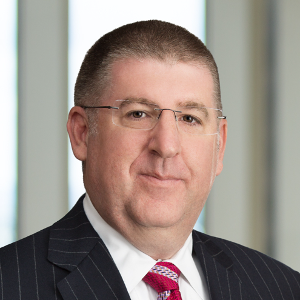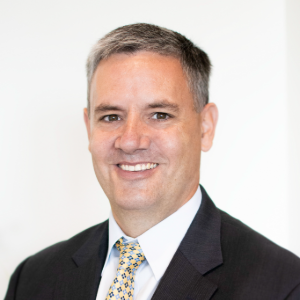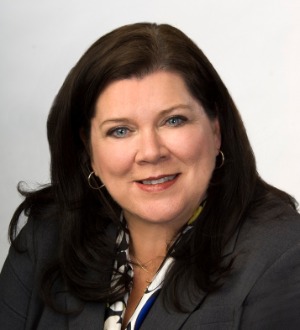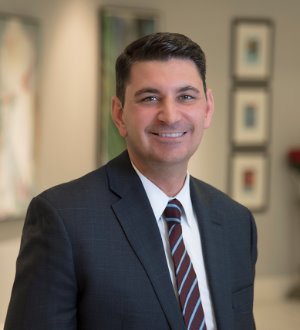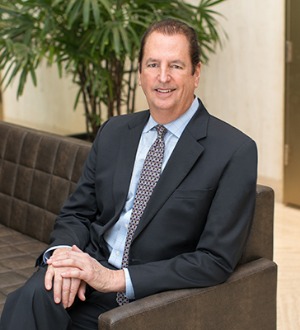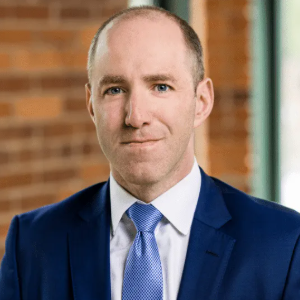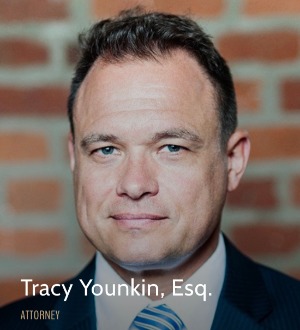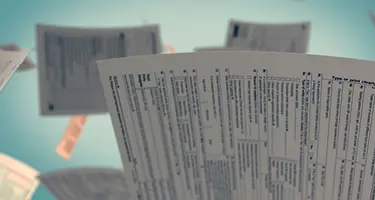The climate crisis is prompting reconsideration, in the C-suite and elsewhere, of what exactly constitutes a foreseeable risk to a given business. The World Health Organization considers the following to be known hazards of climate change:
- increased severity and frequency of extreme weather;
- increased ambient temperature;
- increased air pollution;
- and increased exposure to UV radiation.
These and other far-reaching effects present new challenges for executives to consider. Here’s a rundown.
The Impact on Workers
Although occupational health and safety legislation requires employers to take reasonable precautions to protect their staffers, extreme weather such as floods, hurricanes or heat waves can transform an ordinarily safe work area into a hazardous space. Higher temperatures can also alter a person’s skills and cognitive and physical capacities, particularly those who work outdoors or who have pre-existing health conditions.
As Canada experiences its worst wildfire season on record, smoke and poor overall air quality may affect workers’ ability to do their jobs—or necessitate additional protective equipment such as a respirator. These hazards are not limited to those who work outdoors, though, as higher temperatures will be difficult to tolerate for those working in non-air-conditioned spaces such as restaurant kitchens and industrial laundries; bad air will likewise affect anyone working in a poorly ventilated space.
Health and safety regulations throughout Canada feature specific rules designed to address the hazards of extreme heat and other weather-related problems in the workplace. As global temperatures continue to rise, more employers will be required to understand and comply with these strictures. In cases where extreme heat or other weather might aggravate a worker’s medical condition or have other adverse effects due to a disability, employers may also be subject to obligations under human-rights legislation in addition to standard occupational health-and-safety requirements.
In some instances, extreme weather might even bring employment to an untimely end—if a storm destroys a field of crops, wildfires ravage a forest or unseasonable temperatures shutter a winter resort. These could all leave employers exposed to wrongful-dismissal liability claims.
Foreseeing the Unforeseeable?
Buildings and infrastructure across Canada face a range of climate hazards. Flooding, degrading permafrost, deteriorating roads, water-supply constraints and more-frequent power outages pose risks to business performance and supply-chain integrity. In a 2021 online report titled Under Water: The Costs of Climate Change for Canada’s Infrastructure, the Canadian Climate Institute found that temperature- and rainfall-related damage to roads and railways could increase by up to CAD 5.4 billion annually by midcentury, and the cost to repair and maintain climate-affected electrical infrastructure could reach $2.4 billion a year by the same period. According to Statistics Canada, spending on flood protection infrastructure in the country rose 90% from 2018 to 2021, with a staggering $1.699 trillion spent by governments and businesses in 2021 alone.
As the Canadian economy faces increased exposure to extreme weather, companies may be motivated to take a closer look at their contract provisions, in particular the force majeure clause within. With greater awareness of climate-related risks to their operations, entities might look to rely on such clauses, through which it can potentially spare itself certain contractual obligations related to situations outside their control.
For example, a wildfire could impede the transport of goods by road or rail, thereby triggering a force majeure clause. Contractual definitions of force majeure often set out a list of specific events tailored to the transaction and industry, along with general language to capture unforeseen occurrences beyond a given party’s reasonable control—a factor the entity relying on force majeure assumes the burden of establishing. A traditional clause, which requires a force majeure event to be unforeseen and impossible to prevent, may not be the right tool for dealing with climate-related troubles.
Spending on flood protection infrastructure in the country rose 90% from 2018 to 2021."
Conclusion
Lawmakers and businesses alike must carefully consider the extent to which climate change–related events are unforeseen (for example, a natural disaster as opposed to merely inclement weather, or what exactly constitutes “extreme” weather) and what efforts they must make to meet their legislative and contractual obligations. As the wide-ranging effects of the climate crisis persist, employers should identify new and emerging hazards likely to arise at their workplace and take steps to address them. Different solutions will suit different workplaces, of course, but they could include tactics such as developing new training and awareness tools for employees or providing access to additional resources.
Whatever the case, employers should know the hazards unique to their workplace; review their internal systems, employment contracts and policies; and adapt as necessary to insulate against any foreseeable risks. Contracting parties that consider their contractual obligations during the initial stages of negotiations will be better positioned to effectively manage the potential effects of climate-related events on their operations. They might also consider including requirements for partners to act to mitigate damages, perform their contractual obligations to the extent feasible, adjust prices as needed and manage inventory during a force majeure event. As the climate crisis will not subside in the near future, businesses should be proactive and manage their risks as effectively as they can.
Bryan J. Buttigieg is recognized as one of the leading practitioners of environmental law in Canada and is certified by the Law Society of Ontario as a specialist in Environmental Law. His practice at Miller Thomson includes a combination of litigation and transactional advice involving civil litigation and regulatory defence representation in environmental and occupational health and safety matters. Bryan represents corporations in litigation arising out of the sale, purchase and use of contaminated property. He provides advice regarding claims for environmental damages, including clean-up costs, loss of use, loss of market value and negligent misrepresentation.
Bruno Caron is the co-leader of Miller Thomson’s ESG and Carbon Finance group. Bruno’s practice is primarily focused on corporate law, securities, financing, mergers and acquisitions of public and private companies, and corporate governance. He is frequently retained as counsel on matters involving business restructuring, statutory arrangements, continuous disclosure requirements and the rules governing shareholders’ meetings. He has also acted as corporate secretary on the board of several public corporations. Bruno has a particular interest with respect to green financing as a mean to mitigate and adapt to climate change and the disclosure rules applicable to the risks associated with climate change. Since its inaugural issuance in 2017, Bruno has acted for the Province of Québec in its multiple green bond issuances. Bruno was also nominated by the Canada Climate Law Initiative to join the list of Canadian Climate Governance Experts. Since 2000, Bruno has been registered as a Foreign Legal Consultant in the state of New York. He practiced law in New York and in Romania and has broad international experience.
P. Jason Kroft is a senior corporate lawyer with over two decades of experience assisting his Canadian and international business clients. Jason is co-leader of Miller Thomson’s ESG and Carbon Finance group. He is also the co-leader of the firm’s national Structured Finance and Securitization practice and routinely advises Canadian and foreign banks and other financial institutions, borrowers, hedgers, financial intermediaries and similar entities in a diverse range of advisory and transactional matters, including financial service product structuring, design, implementation and execution and including complex and novel regulatory and governance matters.
Selina Lee-Andersen is a senior environmental lawyer at Miller Thomson with in-depth experience and leading industry insights that enable her to provide clients with practical advice to address their most challenging legal issues. Having worked in an advisory capacity in both the public and private sectors, Selina is well-positioned to deliver innovative legal solutions to organizations and value-added guidance on the opportunities and impacts of regulatory developments on their operations. Clients value Selina's ability to understand the business environment in which they operate and to tailor legal solutions best suited to meet their needs. Selina is an experienced lawyer in the areas of environmental law, Aboriginal law and regulatory matters. In addition, she regularly advises clients on commercial issues relating to mergers and acquisitions, financing transactions and procurement processes. Selina also specializes in climate change law, where she provides strategic counsel to clients on matters relating to carbon offset systems, emissions trading, regulatory compliance and clean technologies. Selina is widely published on a range of environmental issues, including contaminated sites, natural resource management, climate change policy and carbon transactions.
A seasoned employment and human rights lawyer at Miller Thomson, Geoff Mason provides practical, creative and timely solutions to complex workplace issues. Geoff is uniquely attuned to his clients’ business needs, having been an entrepreneur himself and having worked with start-ups and Fortune 500 companies in industries spanning forestry, mining and high technology. Geoff leans on this experience to approach legal issues innovatively and pragmatically and deliver solutions tailored to his clients. While Geoff strives to enhance the way legal services are offered, he does not compromise on the fundamentals—competency, efficiency and results—and he takes pride in being meticulous and devoted to his work.
Christie McLeod is a member of Miller Thomson's Commercial Litigation Group and focuses on environmental, Aboriginal, administrative and other litigation matters. Christie joined Miller Thomson as a student in 2019 and concluded her articles in 2021. She completed the joint J.D./Masters in Environmental Studies program at Osgoode Hall Law School and York University, with the latter focusing on Canadian climate accountability. During her education, Christie also worked with Human Rights Watch in New York City and Toronto to research the impact of climate change on food security in Indigenous communities in Canada and with West Coast Environmental Law as a summer student and legal researcher. Christie also serves as a member of Lawyers for Climate Justice and a Policy Advisor for the Fossil Fuel Non-Proliferation Treaty Global Steering Committee.


